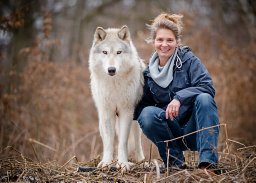Hoi-Lam Jim , Sarah Marshall-Pescini , Friederike Range
PLOS ONE 15 ( 8)
Rachel Dale , Sarah Marshall-Pescini , Friederike Range
Current Zoology 63 ( 3) 323 -330
Désirée Brucks , Sarah Marshall-Pescini , Lisa Jessica Wallis , Ludwig Huber
Frontiers in Psychology 8 849 -849
Giulia Cimarelli , Borbála Turcsán , Zsófia Bánlaki , Friederike Range
Frontiers in Psychology 7 1979
Sarah Marshall-Pescini , Zsófia Virányi , Enikő Kubinyi , Friederike Range
Frontiers in Psychology 8 180
Désirée Brucks , Sarah Marshall-Pescini , Jennifer L. Essler , Jim McGetrick
Frontiers in Psychology 8 270
Borbála Turcsán , Friederike Range , Zsolt Rónai , Dóra Koller
Frontiers in Psychology 8 2232 -2232
Friederike Range , Caroline Ritter , Zsófia Virányi
Proceedings of The Royal Society B: Biological Sciences 282 ( 1807) 20150220 -20150220
Charlotte Duranton , Friederike Range , Zsófia Virányi
Royal Society Open Science 4 ( 7) 170349
Mylene Quervel-Chaumette , Viola Faerber , Tamás Faragó , Sarah Marshall-Pescini
PLOS ONE 11 ( 4) e0152920
Dóra Szabó , Daniel S. Mills , Friederike Range , Zsófia Virányi
Animal Cognition 20 ( 6) 1019 -1033
Désirée Brucks , Sarah Marshall-Pescini , Friederike Range
Animal Cognition 22 ( 1) 1 -15
Friederike Range , Désirée Brucks , Zsófia Virányi
Animal Cognition 23 ( 3) 443 -453
Martina Lazzaroni , Sarah Marshall-Pescini , Helena Manzenreiter , Sarah Gosch
Animal Cognition 23 ( 3) 427 -441
Mario B. Pesendorfer , Tina Gunhold , Nicola Schiel , Antonio Souto
PLOS ONE 4 ( 2)
Zsófia Virányi , Friederike Range
Learning & Behavior 39 ( 4) 306 -309
Jim McGetrick , Friederike Range
Learning & Behavior 46 ( 4) 479 -500
Friederike Range
American Journal of Primatology 65 ( 4) 327 -333
Vera Dell'Mour , Friederike Range , Ludwig Huber
American Journal of Primatology 71 ( 6) 503 -509
Tina Gunhold , Friederike Range , Ludwig Huber , Thomas Bugnyar
American Journal of Primatology 77 ( 3) 264 -270

